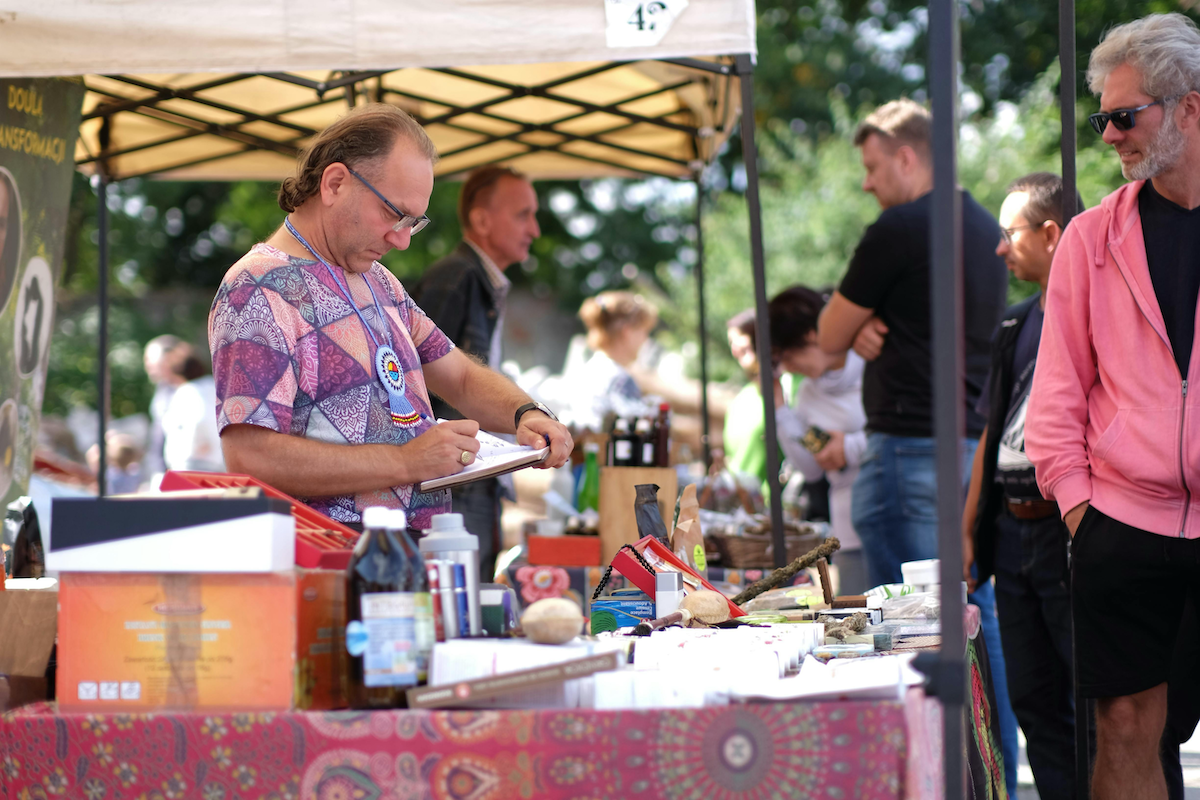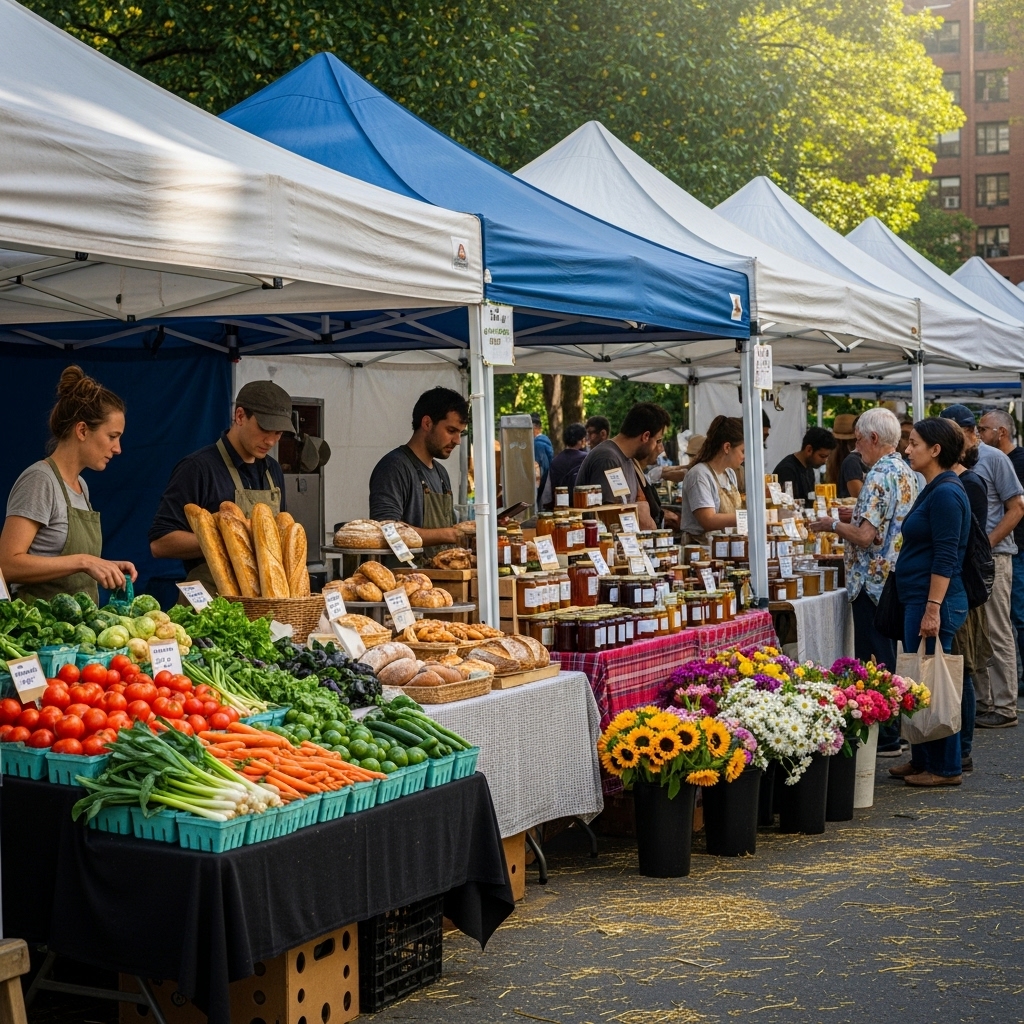From the executive who traded her corner office for a coffee cart to the accountant now crafting artisan candles at weekend markets, a quiet revolution is rolling through America’s streets, parks, and event spaces. The mobile vendor industry—encompassing everything from gourmet food trucks to handmade jewelry stands—has become the unexpected pathway for millions seeking freedom from corporate constraints and a more fulfilling way to earn a living.
This isn’t just about food trucks anymore. It’s about lemonade entrepreneurs, mobile boutiques, craft vendors, and anyone with a product, a dream, and the desire to take their business directly to their customers. And at the heart of this movement, platforms like Hivey Marketplace are emerging to connect this growing army of mobile entrepreneurs with the events and opportunities that can make their ventures thrive.
The Great Career Migration
The numbers tell a compelling story of professional transformation. Recent studies show that nearly 50% of Americans have considered starting their own business, with mobile and event-based ventures ranking among the most popular options. The appeal is clear: lower startup costs, flexible schedules, and the ability to test business ideas without the massive overhead of traditional retail.
The pandemic accelerated what was already a growing trend. As remote work normalized and people reassessed their career priorities, many discovered that the traditional 9-to-5 path wasn’t the only route to financial stability. In 2023 alone, applications for mobile vendor permits increased by over 65% in major metropolitan areas across the country.
But this shift goes deeper than economics. It’s about reclaiming control over one’s professional destiny. The corporate burnout that defined the 2010s has given way to entrepreneurial optimism in the 2020s, with mobile vending serving as an accessible entry point into business ownership.
Beyond Food: The Full Spectrum of Mobile Entrepreneurship
While food trucks often grab the headlines, the mobile vendor ecosystem is remarkably diverse. Coffee cart operators are serving specialty drinks in business districts, bringing cafe-quality beverages directly to office workers who no longer want to trek across downtown for their morning ritual. These mobile caffeine entrepreneurs often report higher profit margins than traditional coffee shops, with significantly lower overhead and the ability to follow demand patterns throughout the day.
Craft vendors have found new life in the mobile model, moving beyond traditional craft fairs to pop-up markets, corporate events, and neighborhood festivals. Jewelry makers, candle crafters, artists, and makers of all kinds are discovering that mobility allows them to test multiple markets, build diverse customer bases, and adapt quickly to seasonal demands. A candle maker might focus on outdoor markets in summer and holiday corporate events in winter, maximizing earning potential year-round.
The beauty industry has embraced mobility with mobile salons, makeup artists, and wellness practitioners bringing services directly to clients. From wedding parties to corporate wellness events, these entrepreneurs are redefining convenience in personal care services.
The Side Hustle Revolution
For many, mobile vending represents the perfect side hustle—a way to supplement primary income while exploring entrepreneurial interests. Teachers sell handmade crafts at weekend markets, nurses operate coffee carts before their shifts, and IT professionals flip vintage items from mobile boutiques on weekends.
This trend has been particularly pronounced among younger professionals who witnessed their parents navigate corporate layoffs and economic uncertainty. Gen Z and millennials are creating their own job security by diversifying their income streams, with mobile vending offering an ideal testing ground for business ideas.
The flexibility is unmatched. A full-time marketing manager can run a successful jewelry business at evening events and weekend festivals without conflict. A retired engineer can pursue his passion for gourmet hot dogs without the stress of managing a full restaurant. The mobile model accommodates life’s other priorities while still offering genuine income potential.
The Corporate Exodus Stories
Behind every mobile vendor is a story of transformation. Sarah left her HR director position after 15 years to launch a mobile boutique featuring sustainable fashion. She now makes comparable income while working half the hours and reports stress levels that are “incomparably better.” Her custom-wrapped van travels to corporate campuses during lunch hours and neighborhood events on weekends.
Mike, a former financial analyst, discovered his passion for specialty coffee during the pandemic. His mobile espresso cart now serves three regular business districts and books private events on weekends. “I went from analyzing other people’s businesses to building my own,” he says. “The math was pretty simple—lower stress, higher satisfaction, similar income.”
These aren’t isolated stories. Across the country, former executives, middle managers, and corporate professionals are finding that mobile vending offers something their previous careers couldn’t: direct customer relationships, creative fulfillment, and the satisfaction of building something tangible.
The Event Economy Boom
This mobile vendor revolution coincides with explosive growth in the event economy. Corporate events, festivals, farmers markets, pop-up markets, and private celebrations are all seeking authentic, unique vendor experiences. Event organizers report that diverse mobile vendors—not just food trucks—are among their most requested features.
Corporate campuses are hosting regular pop-up markets featuring everything from artisan goods to mobile services, recognizing that these events boost employee morale and support local entrepreneurs. Wedding planners are incorporating mobile vendors for everything from late-night snacks to on-site beauty services. Community organizations are organizing mobile vendor markets as fundraising and community-building events.
However, this growing demand has highlighted a significant challenge: connection. Event organizers struggle to find reliable, professional mobile vendors, while vendors spend countless hours searching for legitimate opportunities, often through scattered Facebook groups, word-of-mouth networks, and unreliable platforms.
Enter Hivey Marketplace: Building the Infrastructure for Revolution
Recognizing this gap in the mobile vendor ecosystem, Hivey Marketplace is developing a comprehensive platform designed to serve both sides of the mobile vendor equation. Rather than treating vendors and event hosts as separate markets, Hivey understands that their success is interconnected—great events need great vendors, and successful vendors need access to quality opportunities.
For mobile vendors across all industries, Hivey Marketplace offers what has been missing: a centralized, professional platform to discover legitimate events and opportunities. Whether you’re a food truck operator, craft vendor, mobile service provider, or any other type of mobile entrepreneur, the platform provides access to a curated marketplace of events actively seeking vendors.
The platform goes beyond simple listings. Hivey Marketplace includes vendor verification systems to ensure event organizers can find professional, reliable vendors, while also providing vendors with detailed event information, transparent pricing, and secure payment processing. This creates a level of professionalism that elevates the entire industry.
For event organizers, the platform solves the persistent challenge of vendor discovery and management. Instead of juggling dozens of individual communications, event hosts can browse verified vendor profiles, compare options, and manage bookings through a single platform. Whether planning a corporate lunch event, weekend festival, or private celebration, organizers can find the right mix of vendors to create memorable experiences.
Legitimizing the Movement
One of Hivey Marketplace’s most important contributions is bringing legitimacy and professionalism to an industry that has often operated in informal networks. By creating standardized processes for bookings, contracts, and payments, the platform helps both vendors and event organizers approach their business relationships with confidence.
This professionalization benefits everyone. Vendors gain access to higher-quality events with reliable payment terms. Event organizers can plan with confidence, knowing they’re working with verified, professional vendors. The entire mobile vendor industry benefits from elevated standards and increased credibility.
The platform also provides valuable data and insights that help vendors make better business decisions. Understanding which events perform best, which locations generate the most revenue, and which seasons offer the greatest opportunities helps mobile entrepreneurs optimize their strategies and maximize their success.
The Future of Mobile Entrepreneurship
The mobile vendor revolution shows no signs of slowing. As more Americans prioritize work-life balance and entrepreneurial fulfillment, the appeal of mobile business models will only grow. The infrastructure being built by Hivey ensures that this growth will be sustainable and professional.
We’re likely to see continued diversification in mobile vendor categories, more sophisticated operations, and increased integration between mobile vendors and traditional businesses. Corporate campuses might develop ongoing relationships with rotating vendor schedules. Neighborhoods might organize regular mobile vendor programs as community amenities. The possibilities are endless.
Technology will continue to play a crucial role, but not as a disruptor—as an enabler. The most successful platforms will be those that understand the human element of mobile vending: the personal relationships, the community connections, and the entrepreneurial dreams that drive this movement.
Supporting the Dream
Every successful mobile vendor represents more than just a business success story. It represents someone who took control of their professional destiny, someone who chose fulfillment over conformity, someone who decided that the American dream looks different in the 21st century.
Platforms like Hivey Marketplace aren’t just connecting vendors with events—they’re supporting a fundamental shift in how Americans think about work, entrepreneurship, and success. By providing the infrastructure that helps mobile entrepreneurs thrive, they’re contributing to a more diverse, creative, and resilient economy.
As this revolution continues to roll through America’s streets and events, one thing is clear: the mobile vendor movement represents more than just a trend. It’s a reimagining of entrepreneurship itself, making business ownership accessible to anyone with a good idea, some determination, and the willingness to take their dreams on the road.
The revolution is mobile, and it’s just getting started.





